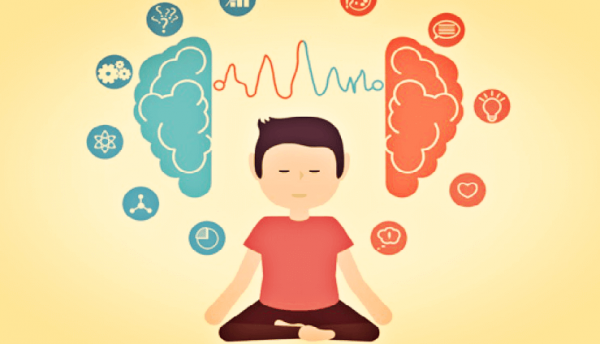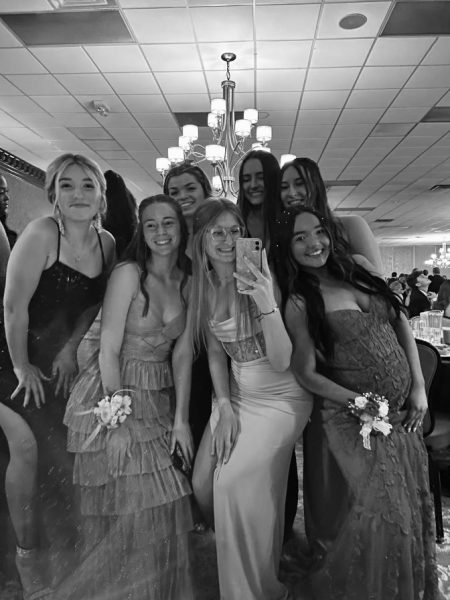Reconciling emotions and rationality

photo via Exploring your Mind
Picture a Venn diagram. On the left, you have your reasonable mind—that’s the logical part of your brain. If you’re like me, your reasonable mind manifests as a pretentious, monotone voice in your head that interprets situations for what they are, explaining the rational solution to a given problem you face even when it’s not what you want to hear.
On the right side of the diagram, then, you have your emotional mind. We like her. She’s the one who tells us to chase the dream, to hold out hope that our crush likes us back, to believe we might actually pass the chemistry test we forgot to study for. The emotional mind quite honestly believes she’s the narrator of a romantic teen coming-of-age movie and, if she’s strong enough, she’ll have you believing you’re the film’s protagonist.
Now, the two sides of this Venn diagram overlap in what’s called the wise mind. This is the state of mind we’re supposed to be in when making decisions, as it takes into account both rationality and emotional factors in a balanced way. Theoretically, we all have the capacity to achieve this state of mind in all scenarios.
I’ve always struggled with articulating exactly what goes on in my mind but, after being introduced to this idea of a Venn diagram for mindfulness, I think I can more accurately explain.
The last thing my reasonable and emotional minds want to do is overlap in their decision-making processes. I’m convinced I’ve got less of a Venn diagram going on and more of a sideways number eight. When I talk to my friends about a difficult situation I’m facing, I often describe a feeling of having two separate perspectives in my head that are constantly competing and refusing to agree or compromise. This reality has frustrated me for a really long time and made it difficult for me to make important decisions in my personal life.
About two weeks ago, I decided I’m done living with this bitter divorced couple inside my head all the time. I needed to channel Lindsay Lohan’s energy from “The Parent Trap” and reconcile my reasonable and emotional minds. I needed to strengthen my wise mind and, as hippy-dippy as it initially sounded to me, I ultimately looked to meditation and journaling.
One night, as developments in my personal life sent me into a whirlwind of emotions, I crafted a quick playlist of calm, emotional songs, sat in the corner of my room, closed my eyes and just took a couple minutes to breathe. This brief meditation didn’t fix my problem—as is to be expected—but that time alone with my thoughts helped me process my feelings and, to an extent, allowed me to calm down enough so I could accept what my reasonable mind was telling me. This, I believe, is the first step to cultivating a wise mind: spend time coming to a more complete understanding of your emotions and then introduce rationale.
This experience offered short-term relief and will likely improve my life with more consistent practice, but I felt I needed something more. It was pointed out to me that I’m typically more logic-driven during the day and more emotional at night, so I decided to start there.
A few days later, when I had another emotional night, I started journaling. The way I saw it, I could spill out everything my emotional mind was ruminating on that night (since she seemed to be in control) and then deal with my feelings the next morning from a more rational perspective. Part of me was honestly hoping this wouldn’t work—I didn’t have time to make journaling a nightly ritual—but, of course, it helped. By recognizing that my reasonable and emotional minds were at their strongest at different times and structuring my coping process around that schedule, I was able to reflect and meditate on problems in my personal life in a much deeper, more intelligent way.
So…shoot. I found what works, but I didn’t have time for the kind of commitment that meditation and journaling require. Whatever will I do, I asked myself like a dumb, stupid idiot.
I knew what I had to do. I had to make time for my mental health, even if it meant other pursuits had to fall by the wayside. A 30-minute journaling session needed to be worth more than extra studying for a calculus test or another episode on Netflix, which sounds obvious but actually turned out to be a challenging choice to make. From a leisure perspective, I didn’t even enjoy journaling. I didn’t want to push aside other priorities for 30 minutes of hand cramps and emotional exhaustion.
Ultimately, the decision to reprioritize and make time for meditation and journaling came down to delaying gratification. In the short term, dedicating so much time to dealing with my emotions is absolutely draining, but, in the end, I’ll be a healthier, happier and more well-adjusted person.

